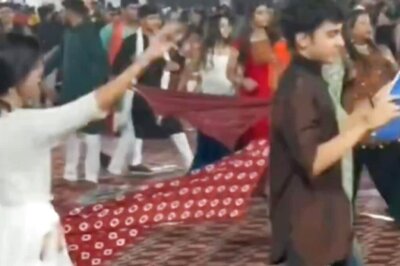
views
It has been a year since Gauri Lankesh was taken away from us. The void in public life, seen in the wake of that tragic event, manifests ever so often. Each time democratic norms are violated, I cannot help imagine what she might have done in response: she rarely let acts of injustice go down unprotested.
The shock and grief about Gauri’s assassination seen across the country and outside seemed to be as much about the tragic fate that she had met as it was about the degeneration of political democracy in contemporary India. A journalist and social activist mostly familiar within Karnataka justly became an icon of selfless idealism and courageous democratic activism in the country.
Gauri’s work as editor and social activist shows a love for social justice and an exemplary commitment to political democracy. Running Lankesh Patrike without commercial advertisements or any other external financial support, like her father, the major Kannada writer, P Lankesh, had done during the first two decades of the weekly’s existence, the independence of her weekly mattered deeply for Gauri.
After being in English journalism for over 15 years, Gauri became the editor of Lankesh Patrike, after her father died in 2000. The weekly, which declared itself as a paper for “the intelligent Kannada young men and women”, had achieved a cult status in Karnataka by then: it featured a mix of critical reportage, high-quality fiction and non-fiction by major Kannada writers and critics and light news items on films and sports.
Acutely conscious that she was not a writer like her father, she was determined nevertheless to continue the weekly as it had evolved. She translated short stories on her own, for instance, to ensure that the weekly had fiction content alongside everything else.
Gauri’s interests showed range: politics, literature, films, theatre. Her work experience in Delhi and her travels abroad, in France, the United States of America, and South Africa, had allowed her an exposure not commonly available to journalists in Karnataka. The richness of her experience showed in her weekly. Her editorial columns moved across local, national and international issues with ease.
After Gauri led a successful struggle to prevent the shrine for Baba Budan, a Sufi saint, and Hindu deity Dattatreya, which both Muslims and Hindus revere, from being occupied by the Hindu Right-wing, in 2003, countering the growing communal politics in the state became a major preoccupation of her work. Becoming involved in a variety of activist struggles outside her journalism, she also emerged as a prominent social activist over the years.
Gauri fearlessly took on every kind of vested interest: religious fundamentalists, heads of mathas, corrupt politicians, officials and businessmen. Her weekly made ample space for local struggles that mainstream media took little interest in. The retributions which often took the form of hate mail and defamation cases did little to diminish her courage and determination.
As a publisher, Gauri commissioned the translation of several books in Kannada. Here too, there was little trace of commercialism. She didn’t expect to make profits from the sales of those books. The translators worked out of an idealism as well. The fiction and non-fiction writings of people like Khushwant Singh, Saadat Hasan Manto, Faiz Ahmed Faiz, Kamala Das, K. Balagopal, Revathi and Anand Teltumbde that she published reveal a commitment to introduce critical voices from outside Karnataka to Kannada readers.
Gauri’s death has occasioned a critical energy to prevail in discernible and not-so-discernible ways. Hundreds of condolence meetings have been held for her in cities and towns in Karnataka and outside, offering a renewed intensity to discussions of media freedom and democracy in India.
The Way I See It: A Gauri Lankesh Reader (DC Books and Navayana, 2017), an anthology of her writings, ranging from the days of her early journalism in English to her editorials in the Kannada weekly, Gauri Lankesh Patrike, that I helped put together, has since appeared in Hindi, Kannada, Malayalam, Tamil and Telugu and is presently being translated into Bengali.
Our Gauri, a documentary on Gauri’s activism made by Bengaluru-based filmmaker Deepu has seen hundreds of screenings. It has been moving to see the concern and affection shown for her across the country.
Founded by a few of Gauri’s activist friends and journalist colleagues from her weekly, the Gauri Memorial Trust, has organised a conference in Bengaluru today to mark the first anniversary of her death. It will launch a Kannada weekly, Nyaya Patha (The Way of Justice) to continue the intrepid journalism seen in Gauri’s weekly. They had wanted to name the new weekly, Naanu Gauri (I am Gauri), but were not able to find permission for it from the Registrar of Newspapers for India.
The PEN India and South India has instituted the Gauri Lankesh Award for Democratic Idealism, an annual award that recognises the commitment of Indian language journalists towards nourishing democratic culture.
The Special Investigation Team of the Karnataka government has done commendable work over many months to identify the assassins of Gauri. The results of their work, which have been made public in recent days, show clear links in the plotting and the execution of the assassinations of Gauri, Professor Kalburgi and Govind Pansare (in 2015) and rationalist Narendra Dabholkar (in 2013). It is impossible not to regret that more alert intelligence agencies might have saved Gauri and the other remarkable individuals.
(The author is Professor of Sociology at Bengaluru’s Azim Premji University. Views are personal)


















Comments
0 comment